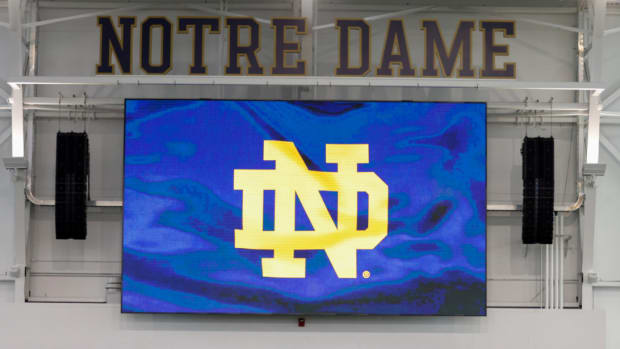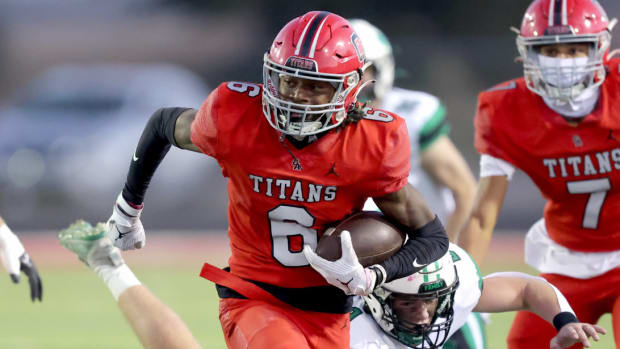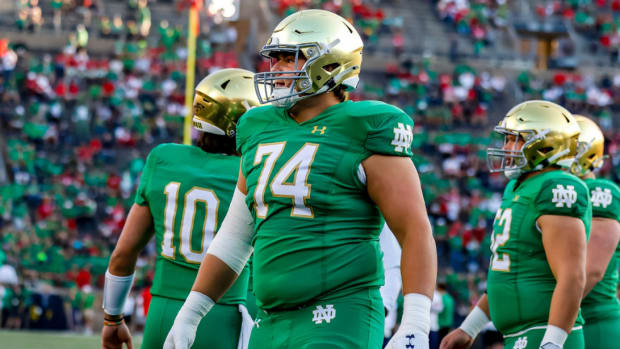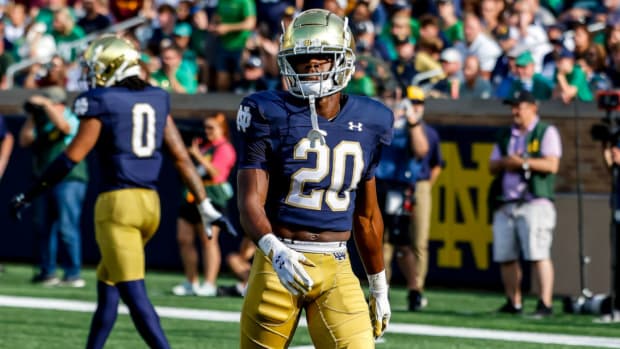Putting Utah Or Baylor In The CFP Sets A Disturbing Precedent
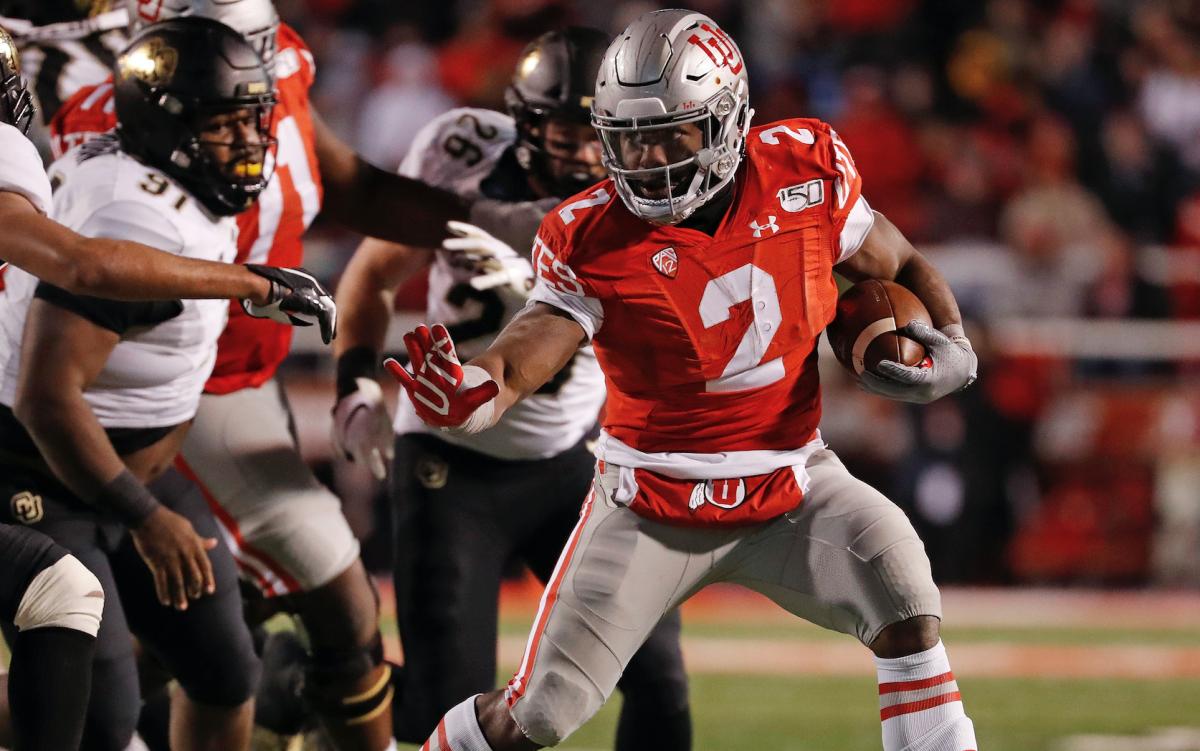
Barring one of the biggest championship weekend upsets in a very long time, it would seem three of the four berths to the College Football Playoff are set.
Unless Ohio State and LSU just get obliterated this weekend in their conference title games, both should get in even with a close loss. Like the Tigers and Buckeyes, Clemson heads into the weekend undefeated and with a Playoff spot likely secured.
The fourth spot is up for grabs, and the options for that berth aren’t pretty. There seems to be a good chance that the final choice could set a very bad precedent for future college football seasons.
What makes college football great, in my opinion, is that it is by far the best regular season. Winning every week matters, and the game is best when there are great matchups week after week. That’s part of the reason I’m so against an 8-team playoff; expanding the playoff cheapens the regular season.
The committee has stated in the past that schedule matters, but based on how it has ranked many teams this year it appears they are going against that. While hammering Clemson - a team that tried to schedule well but had some bad luck with teams being down - for being down, the committee didn’t seem phased by an Alabama schedule that was even weaker.
Now, Utah and Baylor are both poised for a playoff spot, and if either one of those squads gets in the precent it will set could be devastating for college football. No, I’m not being hyperbolic either.
SETTING A BAD PRECEDENT
I have no issue with Utah or Baylor as programs. Utah has a brilliant defense and a running back that I thoroughly enjoy watching. Baylor head coach Matt Rhule has done a tremendous job rebuilding that program after the disastrous end to the Art Briles era, and his squad competes hard week after week. Both Utah and Baylor are led by top-notch football coaches.
But let’s not kid ourselves, both Utah and Baylor scheduled for success, and that should not be something the committee - or the national media - support.
Utah played BYU (7-5), Northern Illinois (5-7) and FCS opponent Idaho State (3-9) in its non-conference. Zero Power 5 opponents. That’s intentional.
Baylor played Texas-San Antonio (4-8), Rice (3-9) and FCS opponent Stephen F. Austin (4-8) in its non-conference. Zero Power 5 opponents. Again, intentional.
I get that both teams play nine conference games, but there are other teams in both of their leagues who are scheduling much better than that.
Their schedules make Alabama’s non-conference slate actually look decent, and I think we can all agree that Alabama plays in a far more challenging conference than Utah.
What is Utah’s resume?
The Utes are 11-1 against a schedule that is a combined 68-76. Utah played one team that won more than seven games in the regular season. I’ll repeat that, Utah played ONE TEAM that won more than seven games in the regular season.
That team was USC, who beat Utah (30-23) with its third-string quarterback. That means the 11 teams that Utah defeated had a combined record of 60-72, and none won more than seven games.
Utah’s best win was a 33-28 road win at Washington (7-5), a team that lost to Stanford (4-8) and Colorado (5-7).
Yes, Utah plays outstanding defense, but is it much easier to be good on defense when your unit isn’t challenged. The best offense it faced all season, at least from a talent standpoint, averaged 7.1 yards per play and scored 30 points. And again, that was a USC team with their third string quarterback.
What is Baylor’s resume?
The Bears are 11-1 against a schedule that is a combined 69-75. Baylor has wins over an 8-win Kansas State team and an 8-win Oklahoma State team, both on the road, which adds value. Baylor also has a win over 7-win Texas. It’s only loss was to 11-1 Oklahoma (34-31) at home.
Baylor beat Rice (3-9) by eight points, it beat Iowa State (7-5) by two points, it beat Texas Tech (5-7) by three points, it best West Virginia (5-7) by three points, it beat TCU (5-7) by six points.
Even if you add a win over their conference championship opponents, the opponent record for Utah would be 78-79, and its record against opponents it defeated would be 70-75. The opponent record for Baylor’s schedule would be 80-77, and its record against opponents it defeated would be 69-76.
Are these really the resumes of teams the committee wants to reward with a playoff berth?
WHAT ABOUT OKLAHOMA?
Oklahoma’s resume is a bit different, and part of the reason is Baylor.
First of all, Oklahoma had the same problem that Clemson had this season in that their attempt to schedule well in the non-conference was ruined by teams being down. The year that Oklahoma signed its home-and-home with UCLA - a Power 5 opponent by the way - the Bruins were wrapping up a 10-3 season, and they were 9-5 the year prior.
Houston was coming off an 8-5 season - and was just two years removed from a 13-1 season - when the Sooners agreed to their two most recent matchups.
In the last four years, Oklahoma has played Ohio State (twice), UCLA (twice), Army (who went 11-2) and Houston (twice) in its non-conference.
During that same stretch, Utah has played BYU (four times), Northern Illinois (twice), San Jose State, Idaho State, Weber State, North Dakota and Southern Utah.
That is a grand total of zero Power 5 opponents in the last four years and four games against FCS squads.
Baylor has played Duke (twice), Texas-San Antonio (three times), Rice (twice), SMU, Liberty, Northwestern State, Abilene Christian and Stephen F. Austin in the last four years.
That’s one Power 5 opponent (Duke) and four FCS teams.
These are teams that you want to send to the playoff, even with a loss on their schedule?
That’s why I view Oklahoma in a different light than both Utah and Baylor, even though their opponent’s record is just 71-73. There are two ways to evaluate a schedule from a big picture standpoint. The easy one is to evaluate what the schedule is, but the second requires a bit more nuance, and that’s evaluating intent. Oklahoma tried to schedule well, Clemson tried to schedule well. Utah and Baylor clearly intended to schedule soft.
Of course, if Oklahoma beats Baylor this weekend it will improve to 82-75, which is much better than Utah’s.
I struggle to understand how Utah is ranked ahead of Oklahoma at this point in time. Both teams lost road games to 8-4 opponents. Both teams have relatively soft overall schedules, although Oklahoma’s is clearly stronger.
But Oklahoma has a win over an 11-1 opponent and a win over an 8-win Oklahoma State team (on the road). As I pointed out above, the best team Utah has defeated thus far has just seven wins.
SO WHAT SHOULD HAPPEN?
Let’s assume LSU beats Georgia and Utah beats Oregon, for argument’s sake.
If that happens and Oklahoma beats Baylor there is little doubt in my mind the Sooners would be far, far more deserving of the final berth. Oklahoma’s schedule isn’t incredibly challenging, but the Sooners attempted to schedule much better than Utah and Baylor, and they have a Top 10 win already under their belts. A second win over Baylor would mean Oklahoma has two wins that are better than Utah’s best win should they beat Oregon this weekend.
Should Baylor beat Oklahoma, the Bears still wouldn’t have a playoff caliber resume in my view, since they needed a rematch to beat the best team on their schedule, having already dropped the first game against Oklahoma … at home.
If Oklahoma loses to Baylor and Georgia loses a close game to LSU, then a strong, strong case could be made that Georgia should remain in the top four. Georgia’s opponent record is 77-67, and the record of the 11 teams it has defeated is 73-59, which blows away the Utah and Baylor resumes.
Is Georgia’s 11-2 resume less impressive than Utah or Baylor’s 12-1 resume? Is 11-2 inferior to 12-1 simply because of the numbers? Shouldn’t a playoff committee be able to look deeper than that? Shouldn’t media folks that are paid to provide analysis be able to dive deeper into those teams?
Georgia scheduled a Power 5 opponent (Georgia Tech) and Notre Dame in its non-conference. The Bulldogs own wins over a 10-win Notre Dame team, a 10-win Florida team and a 9-win Auburn team. That’s a resume with three wins over Top 15 opponents.
Yes, Georgia lost to a 4-8 South Carolina team, but arguing for who a team lost to instead of who a team beats is really poor logic when trying to determine the best teams. Georgia would have wins over three Top 15 teams. Only LSU and Ohio State - the No. 1 and No. 2 seeds - can match that. Auburn is the only other team with more than one win over a current Top 15 opponent.
If Utah beats Oregon it won’t have a Top 15 win because No. 13 Oregon would likely fall back outside of the Top 15. If Baylor beats Oklahoma it will have a Top 15 win, but again, it would need a rematch to make that happen.
If Georgia gets blown out by LSU then I cannot support them staying in, and the Bulldogs getting blown out and Oklahoma losing to Baylor is the worst-case scenario for me. In that scenario, however, I’d feel better about Baylor getting in thanks to its win over Oklahoma.
I’m not a huge fan of the argument that goes “Well if Team A played Team B’s schedule their record would be …” None of us know how another team would do against a different schedule. All we can do is evaluate the quality of a team’s schedule and how they did against that schedule.
Utah and Baylor played incredibly soft schedules. Their schedules were so incredibly soft that quite frankly, only going undefeated should warrant them getting a playoff bid. Check that, going undefeated should warrant them being in the discussion for a playoff bid.
My issue with how the media discusses these teams, and how the committee has ranked teams in 2019, is that they are focusing way, way too much on record and not resume. I have heard “eye test” used with Utah on more than one occasion, but shouldn’t any good Top 15 team look really good when it plays a bunch of average to bad teams?
If you reward Utah or Baylor with a playoff berth you set a terrible precedent.
Let’s say Notre Dame replaced Georgia with Georgia Tech (3-9) and Michigan (9-3) with Michigan State (6-6), and let’s assume that Notre Dame beat both of those teams and was 12-0. Because let’s be honest, in the last three seasons those are games Notre Dame has won every time they have been played.
The Irish opponent record would be 70-73, which is still better than both Utah and Baylor. Notre Dame would own wins over a pair of 9-win teams (Virginia, Navy), which would be more than Utah even with its Pac 12 title win. The same is true for Baylor should it win the Big 12.
Let’s not forget, Notre Dame also dominated inferior opponents. Notre Dame’s record against opponents that won nine or fewer games was 10-0. Notre Dame beat those ten teams by an average of 41.4 to 15.6.
That’s a wider margin of victory than Utah and Baylor had over its opponents this season. Remember, those teams didn’t beat anyone with more than eight wins. Utah didn’t play an opponent the caliber of Georgia or Michigan, and Baylor lost to the only team it played of that caliber, and that game was at home.
So basically, Notre Dame’s screw up this season wasn’t not showing up for the Michigan game and not finishing off a chance for a game-winning drive against Georgia. The screw up for Notre Dame is that it actually tried to schedule good opponents instead of scheduling for wins.
Sound absurd? Well, isn’t that what Utah and Baylor have done? Notre Dame doesn’t deserve to be in the playoff discussion this season because it didn’t win against the best teams on its schedule. It did, however, have three wins against opponents that are on the same level as the best teams on the Utah and Baylor schedules.
Is that really the message the media and the committee want to send to the rest of the college football world?
I would argue it is not. I would argue that rewarding Georgia for how it scheduled, or rewarding Oklahoma for how it scheduled - or at least tried to schedule - would send a message to the rest of the college football world that would make the game so much better.
If you schedule tough you’ll have a wider margin for error. If you schedule soft you better run the table or you’ll be sitting at home when the playoff games are being played.
Sending the message that scheduling soft gets you in the playoff if you drop a conference game will tell the rest of the college football world to stop scheduling quality out of conference opponents, and that is very, very bad for the game.
Follow me on Twitter: @CoachD178
Visit our Facebook page at: https://www.facebook.com/IrishMaven/

